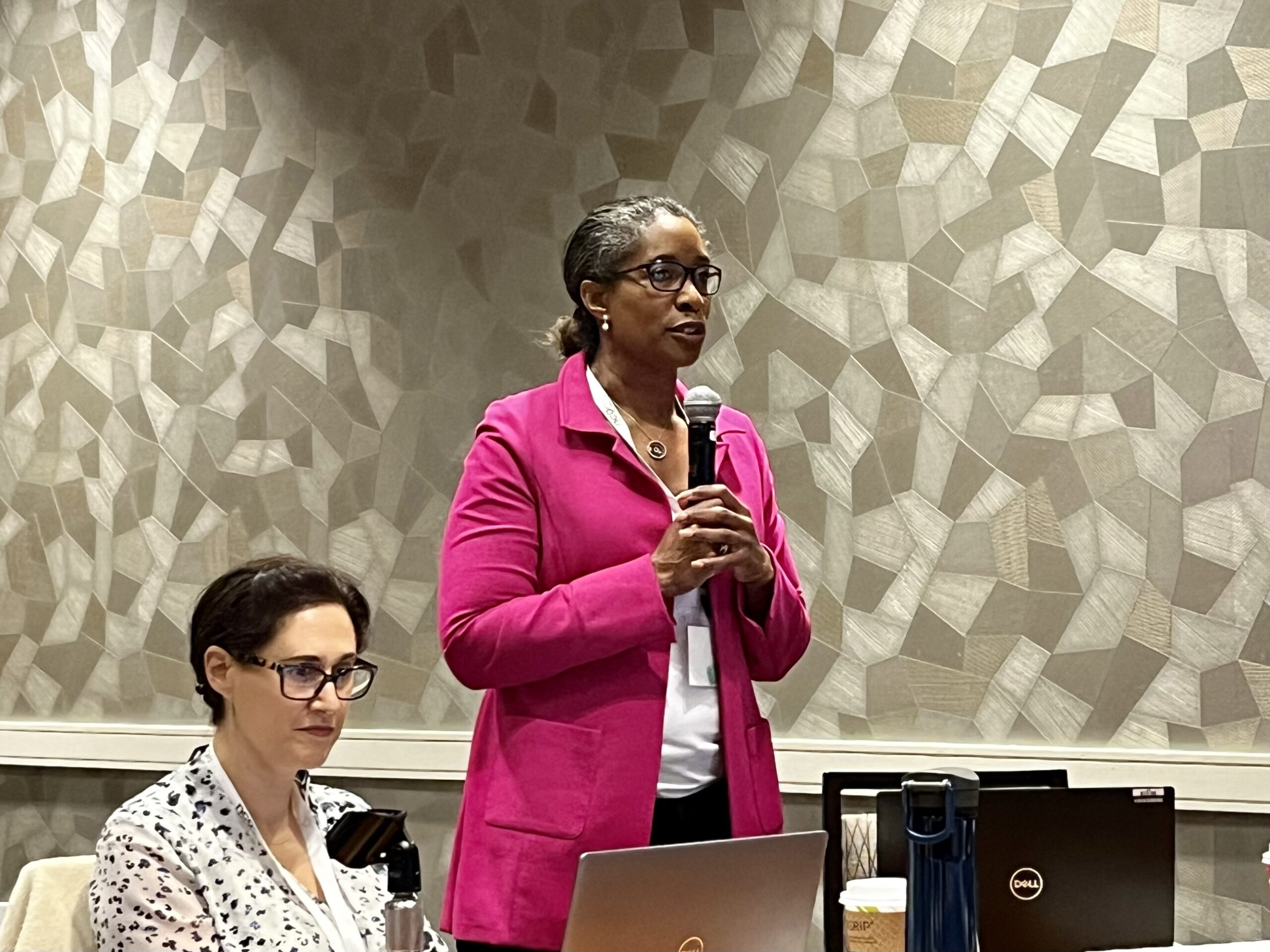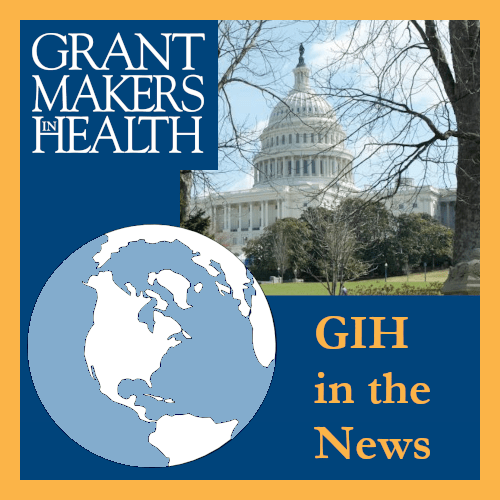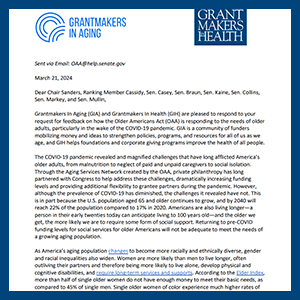Funder Meetup: Older Americans Act Reauthorization Updates
This virtual briefing provided an update on our activities, the latest intel on the OAA reauthorization, and a preview of upcoming opportunities to learn about and influence aging funding and policy.
Driving Change through Public-Private Collaboration at Age + Action 2024
On May 7, 2024, Grantmakers In Health (GIH) and Grantmakers In Aging (GIA) cohosted a funders-only meeting at the National Council on Aging’s Age + Action 2024 conference. The session, “Driving Change through Public-Private Collaboration,” focused on bridging connections between the public and private sectors to improve the health and well-being of older adults in…
Cara V. James and Lindsay Goldman in The Well News: The Older Americans Act Is Not Keeping Pace With Today’s Older Adults
Grantmakers In Health President and CEO Cara V. James and Grantmakers In Aging Chief Executive Officer Lindsay Goldman cowrote a commentary on the need to renew and modernize the Older Americans Act for The Well News, which was published on Monday, May 13, 2024: “We have known for years that the Older Americans Act and…
Grantmakers In Health and Grantmakers In Aging Release Policy Recommendations for Older Americans Act Renewal
On March 21, 2024, Grantmakers In Health (GIH) and Grantmakers In Aging (GIA) responded to a request for feedback about the reauthorization of the Older Americans Act (OAA) from the Senate Committee on Health, Education, Labor and Pensions (HELP).
Opportunities to Engage on the 2024 Reauthorization of the Older Americans Act
First signed into law in 1965, the Older Americans Act (OAA) provides critical services that address the social drivers of health for older adults such as nutrition, transportation, senior centers, elder rights protections, caregiver support, and health promotion. If the OAA is not reauthorized, it is set to expire on September 30, 2024. Grantmakers In…
Advocacy for the Older Americans Act Reauthorization: What Can My 501c 3 Foundation Do?
Participants convened for a workshop that provided a clear understanding of what advocacy activities your 501(c)(3) organization can engage in, what communications count as lobbying, and how to maximize your non-lobbying advocacy.
GIA Member and GIH Funding Partner Meet Up: Older Americans Act Reauthorization
As part of this analysis, leaders from the field convened on January 18 for a meet-up to help shape new partnerships to support the OAA and advance older Americans’ health and social needs.
Grantmakers In Aging and Grantmakers In Health Announce Partnership to Support the 2024 Reauthorization of the Older Americans Act
Grantmakers In Aging (GIA) and Grantmakers In Health (GIH) are pleased to announce a new collaboration aimed at mobilizing funders in support of the 2024 reauthorization of the Older Americans Act (OAA).
The SCAN Foundation: September 2023
The SCAN Foundation published a report analyzing 2014-2020 Health and Retirement Study (HRS) data. The analysis found racial inequities in telehealth, access to care, and health status during the first year of the pandemic. In 2020, non-Hispanic Black and Hispanic adults over 50 experienced worse self-reported health status, used less telehealth, delayed care more, and were less likely to have their care preferences considered compared to their white counterparts.
Member Meet Up: The Next Wave in Creative Aging
Participants joined this informal networking session to talk with their peers about innovative, creative aging initiatives that can improve the well-being of older adults and their communities.




